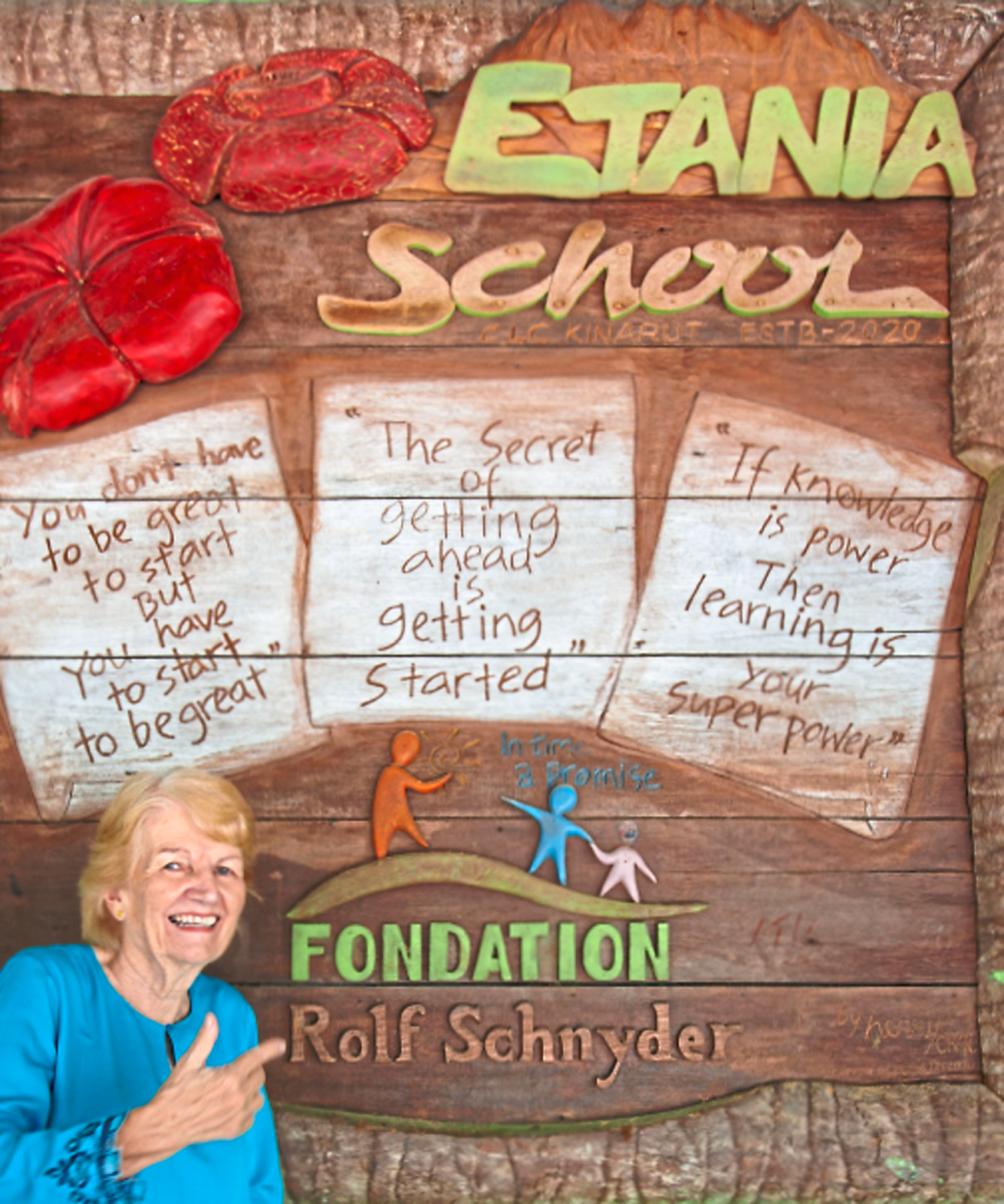Rivai believes that education is the only way to break the cycle of poverty, especially for children from marginalised communities. Photo: Merdeka Award Trust
Educationist Dr Kathryn Anne Rivai’s favourite song may be Imagine by John Lennon, but her lifelong mission to make the world “borderless” in terms of education for marginalised children in Malaysia is not just mere imagination.
The New Zealander, who moved to Malaysia in 1977 when she married a Sabahan, recently received the 2024 Merdeka Award for Outstanding Contribution to the People of Malaysia (given to an individual of any nationality/foreign organisation for their substantial contribution to Malaysia/lives of Malaysians), for her dedication towards improving educational access for marginalised children in the State.
“When marginalised children are deprived of essential rights like healthcare, education and subsequently, employment, it perpetuates the cycle of poverty. It’s only when they have access to education that they can break free from impoverishment,” says the 71-year-old founder and president of NGO Persatuan Pendidikan Kanak-Kanak Matakana Sabah, which oversees Etania Schools.
Rivai, who has dedicated almost five decades of her life towards education, started her journey as a secondary school teacher in Kota Kinabalu in 1978.
She soon advanced into leadership roles, serving as deputy principal and acting principal at Maktab Nasional, a private school.
She also established private primary schools like Sekolah Rendah Swasta (SRS) Datuk Simon Fung (1998) and SRS Seri Insan (2004), both registered under the Education Ministry.
But a life-changing encounter in 2009 shaped her quest to educate children from marginalised communities.
“I received a request from a timber mill and plantation in Keningau to start a school and this exposed me to the harsh realities faced by many children in Sabah,” reveals Rivai, who lives in Luyang, Kota Kinabalu.
“These children, often undocumented and living in poverty, have been deprived of their fundamental right to education.”
The experience led her to establish Etania Schools that same year. Today, there are 14 of such schools, located mainly in rural areas such as oil plantations, with 27 teachers who have helped over 1,000 students aged five to 18.
“I’ve been teaching all my working life – that’s almost 50 years – the past 14 years with marginalised children who don’t have access to education. This has been a most rewarding time for me, helping poor and marginalised children acquire knowledge, good values and dignity to assist in nation building,” says Rivai, who is fluent in Bahasa Melayu.
She has pioneered a unique curriculum at Etania, which emphasises academics, life values and essential living skills. Her approach encourages a sense of responsibility, leadership, independence and empathy, and ensures that students are equipped to effectively contribute to society. This has led to over 10 students graduating from university in 2023, and others succeeding in various vocations.
Rivai has also expanded her focus to include vocational training. One notable initiative, the Model Vegetable Farm project – involving 60 families across three schools – was launched in 2020 to train students to cultivate vegetable farms, and has since expanded to include fish farms.
There is also the Aquaponics Programme, launched in 2023, which teaches children sustainable farming methods, and the Etania Sewing Programme, launched during the pandemic, to empower women with skills to generate an income.
Through her leadership, in 2020, Etania Schools won the JCI Sustainable Development Award, recognising their contribution to SDG 4 (quality education); the “Best of the Best” Overall Award for their educational programmes targeting marginalised communities; and the Singapore President Award for the sustainable design of the Etania Green School, which houses over 350 students in Beaufort, Sabah.
“I’m proud of the way students from such difficult backgrounds and who face unsurmountable challenges have persevered to achieve great things, acquire good jobs, and become good people who have assisted in community development,” she says.
Recognising the importance of well-trained educators, Rivai also established the Coalition of Learning Centres Sabah in 2015.
The initiative provides annual cost-free training programmes, equipping educators with resources to address the psychological impact of marginalisation.
Hundreds of educators have been trained as a result, ensuring that the next generation of teachers is well-prepared to meet the needs of their students.
Rivai discovered that many communities in the state lived below the poverty line and faced issues such as unregistered births and lack of citizenship.
The mother of four says the “hardest and most upsetting” challenge she faces is “when people treat these marginalised children and their families with disdain and relegate them to the lowest ranking in society”.
“Our students are known as the invisible children of Sabah because very few citizens want to know about them or care about them and their welfare.
“Many of our children come from families who have been in Sabah for three to four generations, yet they are still stateless due to lack of documentation.”
Rivai says all children – including the undocumented and stateless – must have access to education, healthcare and nutritious food, as well as opportunities to explore the world and have a career.
“It’s vital to educate and equip our children and their families with the skills to survive, to find their way through the job market, learn how to work together, study smartly, be flexible and adapt to future developments.”
Rivai has spearheaded collaborations with organisations like Unicef and Me.Reka to provide computer literacy, coding and robotics training since 2018, enabling students to gain valuable digital skills.
She is currently setting up a new life skills centre to provide graduates from Etania and other NGO learning centres a safe space to enhance their skills in preparation for work.
“The responses of these marginalised children, who have risen above their hardships and tragic circumstances, have taught me great lessons in life about courage, endurance and living life to the fullest.
“There is such hope and sparkle in each child’s eyes when they’re given the opportunity to learn,” she concludes.















